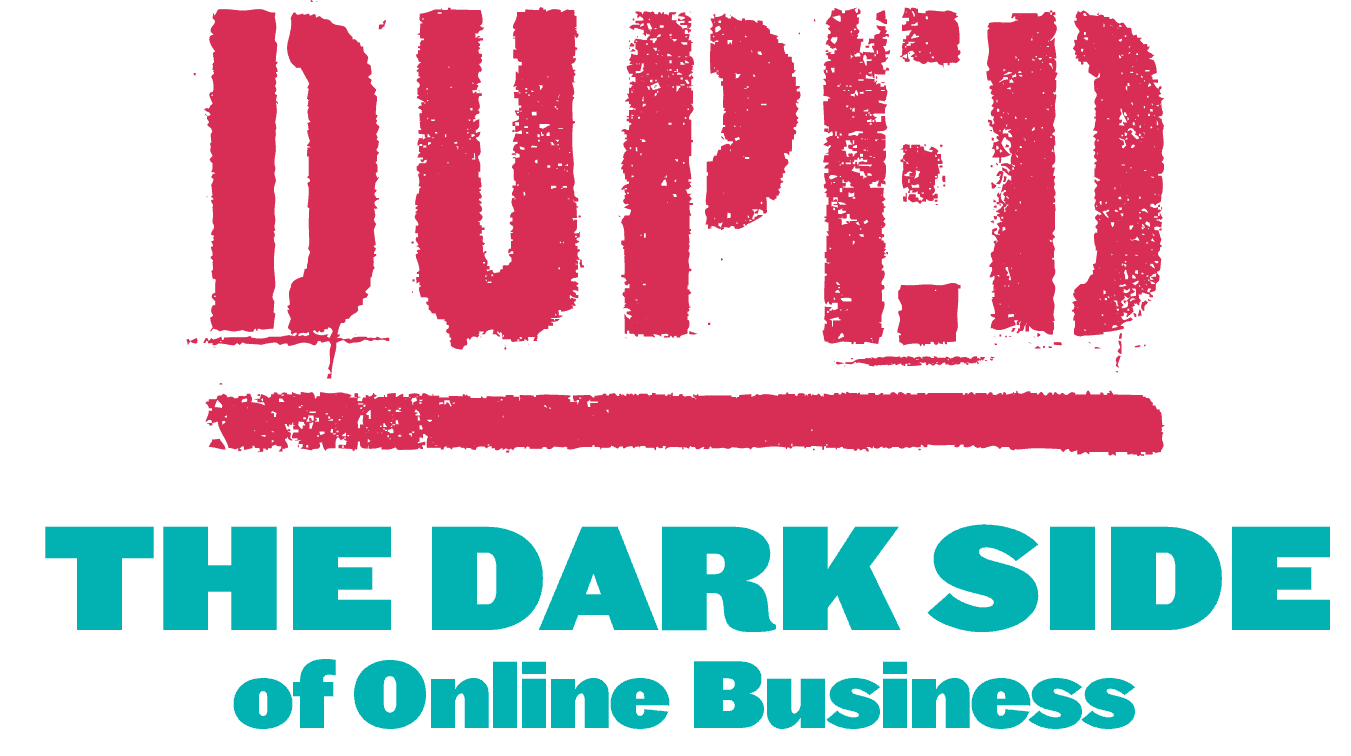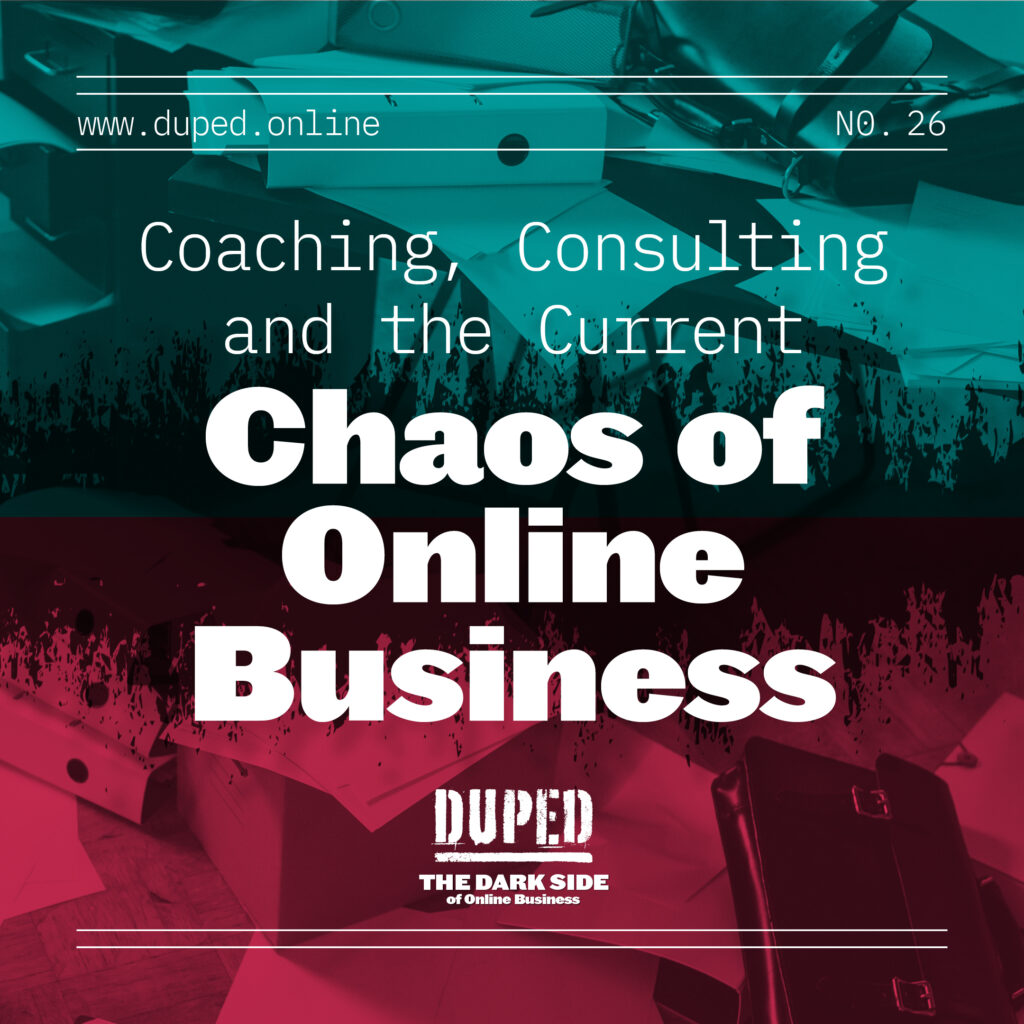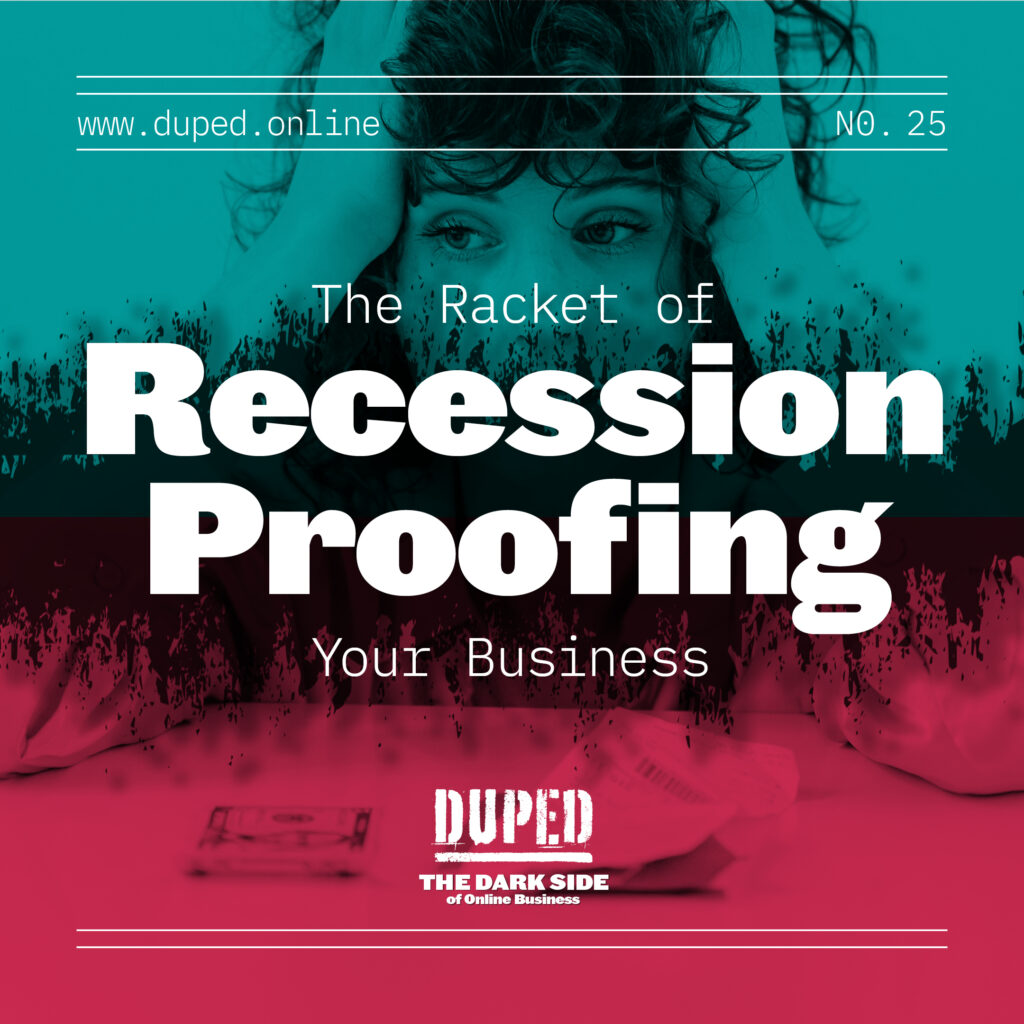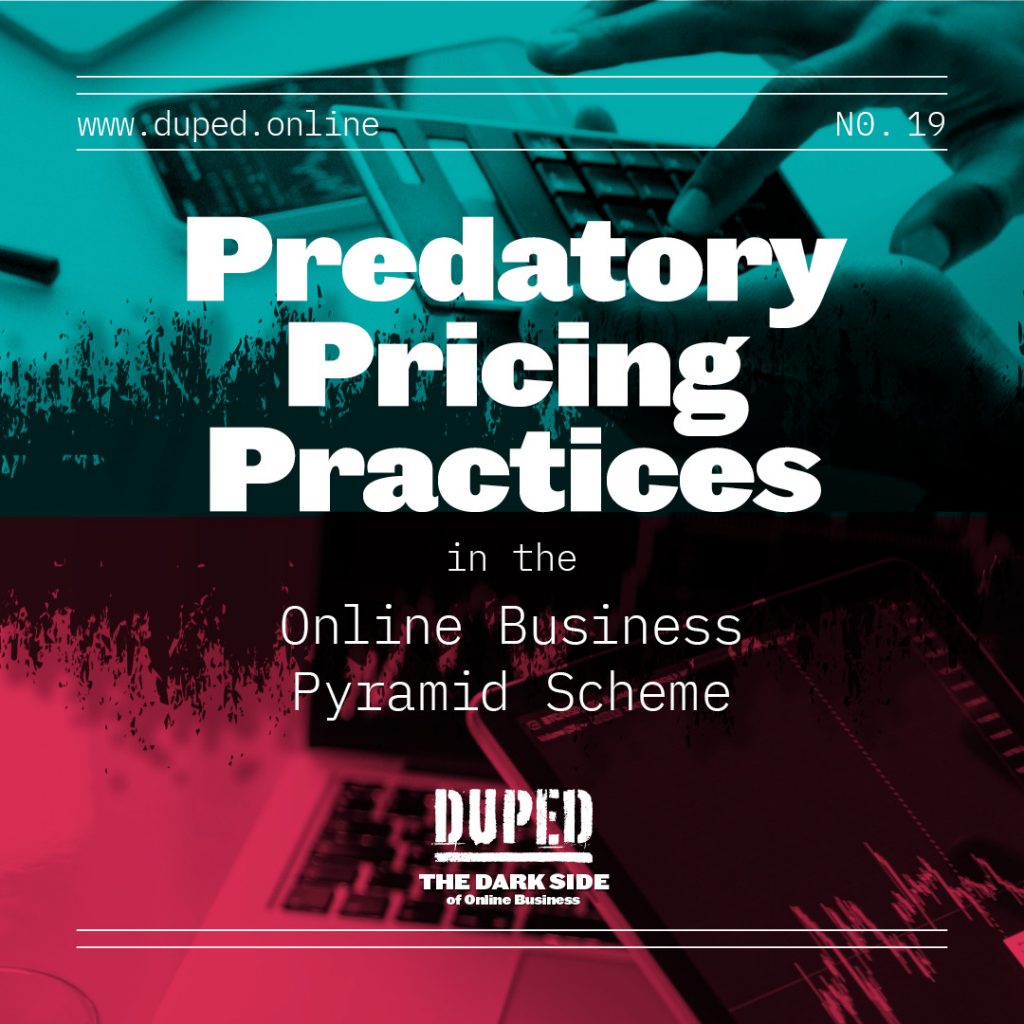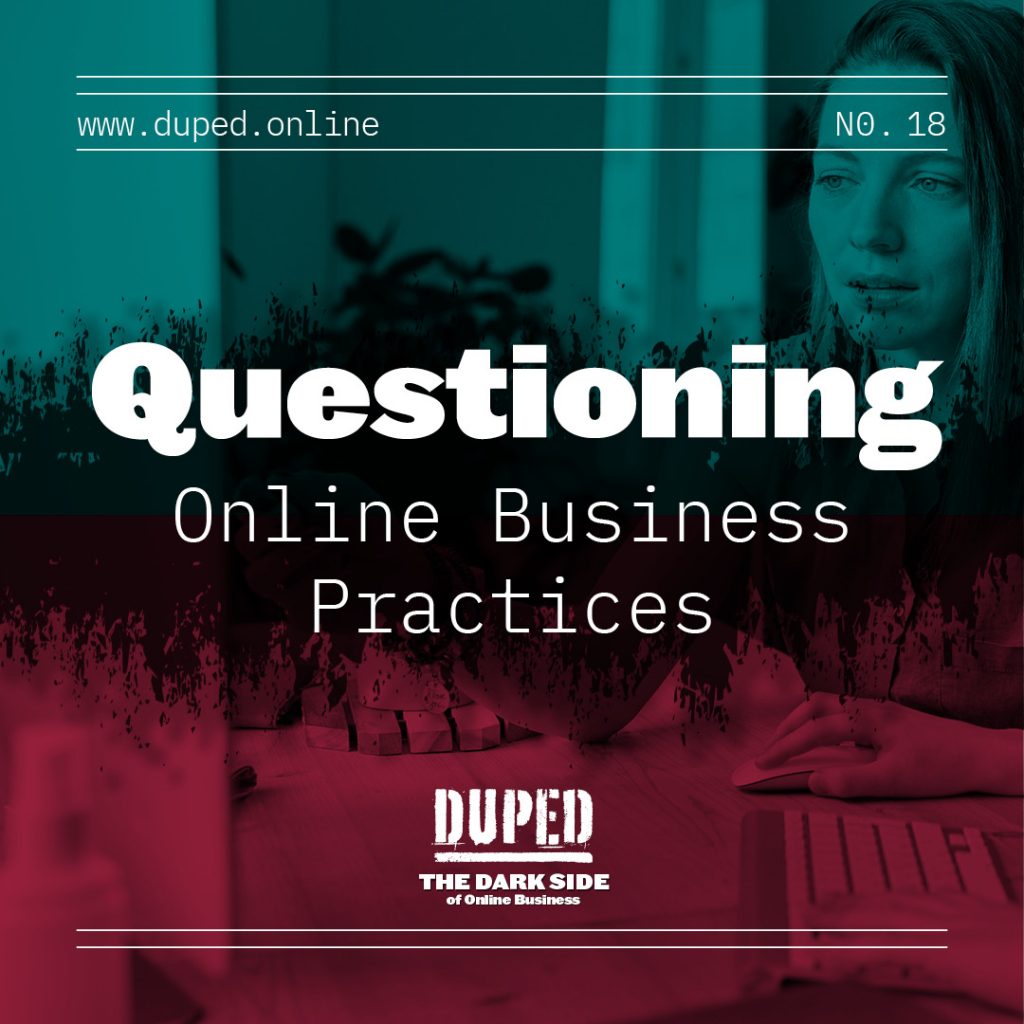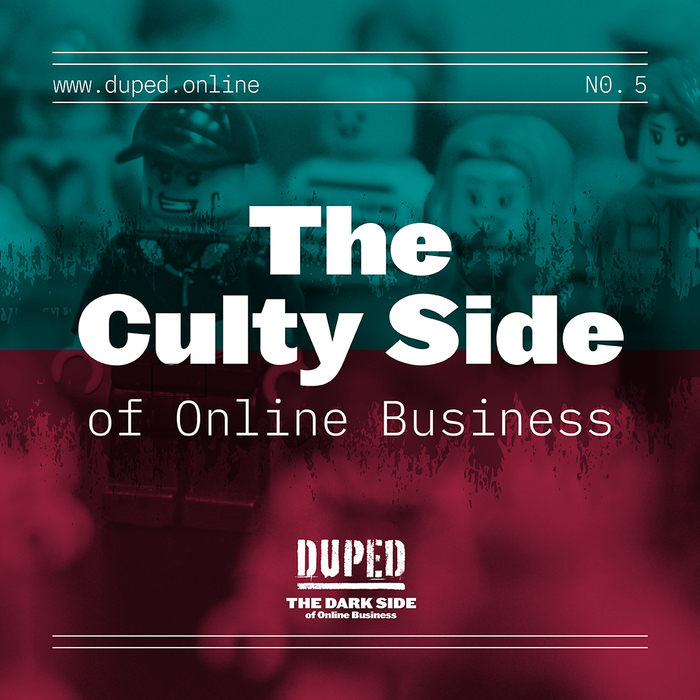
The Culty Side of Online Business

If you’ve ever listened to a podcast, watched a documentary or read a book about cults, you probably were struck with this sinking feeling that it was a little too familiar.
The power dynamics. The focus on mindset. The endless investing in yourself… there’s an undeniable cross over with the online business world.
In this episode, we’re exploring the cult-like side of online business, and what you need to know to protect yourself.
A little fun fact about me (Maggie), is that I’ve always been interested in cults and extreme religions. A big draw for me has been the fact that people think “this could never happen to me”, when really, no one is immune. Any one of us could fall prey to these tactics.
If you’re thinking “really?”. Yes, really.
A cult like NXIVM was dressed up as a self-development movement. As I’ve heard Sarah Edmonson say on her podcast, A Little Bit Culty, these organizations are based on some good things. There’s just enough good that it keeps you believing. (P.S. Shout out to that podcast for inspiring the title of this episode!)
It really sounds a lot like online business when you think about it. After all, for those of us that have been duped, we’re still here. We didn’t cut ties and leave this industry, and there are a lot of reasons we’re hanging in there despite all of the bullshit.
What that doesn’t mean is that online business is alright. Far from it.
The more you learn about cults, the more and more and more you’ll see the parallels. So let’s talk about some of the key ones and why they’re so very problematic.
The BITE Model
The BITE Model was developed by Steven Hassan, and his dissertation was published in 2021, under the full name “The BITE Model of Authoritarian Control: Undue Influence, Thought Reform, Brainwashing, Mind Control, Trafficking and the Law.”
That should give you a good idea of what the BITE Model is all about. It’s “a model to describe the specific methods that cults use to recruit and maintain control.”
“BITE” stands for Behavior, Information, Thought, and Emotional control, and we thought we could use it today to break down just a few of the key ways online business is cult-like. For each one, we’re calling out some of the specific points outlined by Hassan, and diving into where this shows up in online business.
First, let’s talk about what constitutes a cult.
In addition to religious cults, there are psychotherapy cults, political cults, commercial cults, terrorist organizations, and trafficking rings.
Also, there are personality cults, where one person exerts undue influence over another (or a small group of people, such as in a family).
The big distinction that makes a cult, well, a cult, is what’s called undue influence.
This is basically where your decisions are swayed using persuasion that “overcomes the free will and judgement of another person.” According to Hassan this may be done using flattery, deception, trickery, coercion, hypnosis or other methods.
Behavior: Exploitation & Group-Think
Let’s start with behavior. The biggest way this shows up in online business is with financial exploitation and manipulation.
This can come in the form of constantly pushing you to invest using tricks to get you to spend more, or flat out financial abuse.
Another way behavior is controlled in online business is how it encourages group-think and major time spent with group indoctrination (like at a business event).
Information: Lies & Insider Secrets
When you assess online business against the information section of the BITE Model, a few key things really stand out starting with the compartmentalization of information into insider and outsider doctrines.
“Join my program to get the secret. Then you’ll need to join the next program or the next level to get the info.”
The next one is deception. This can be deliberately withholding information, distorting that information or even systematic lies. For me, the systematic lies really start before you buy with the way the dream of online business is sold. Information is withheld about what’s really on the inside, and many times, the sales process is about doing whatever it takes to make the sale.
Finally, another one that shows up in the sales process is “keeping members busy so they don’t have time to think and investigate.” This may be a small example, but that’s the exact strategy behind those long-ass sales pages, convoluted sales processes and constantly having to do another training to get to the next level.
After all, if you’re busy, you don’t have time to think critically or question what’s going on….let alone decide if it’s actually right for you.
Thought: Doctrine & Altered Mental State
The thought section covers some of the most problematic online business practices starting with a heavy reliance on what Hassan terms internalizing the group’s doctrine as truth. This is things like the group’s reality being reality, and organizing people into groups like insiders and outsiders.
This can be seen with bullshit frameworks, the idea that you’re superior as part of a group, or maligning people who aren’t in the group. If you’re not “inside” you’re persona non grata.
The other big one and this is what really got us thinking about the crossover, is the use of hypnotic techniques as well as how critical questions about the leader, doctrine, or policy are forbidden. The perfect examples of this are the use of NLP and hypnosis, or how people get kicked out of programs or silenced for legit questions.
Emotional Control: Fear & Blame
There are a lot of items that are familiar when it comes to emotional control, but the stand out was definitely was the focus on feelings of guilt and fear, as well as blaming the member for their problems.
In online business, guilt frequently is used to tell you that you’re not living up to your potential, while fear is used to keep you in line. That way you don’t question the leader, and you’re scared to leave the group. People literally won’t quit a program or speak up or they fear they’ll be branded as a problem.
Finally, there’s the mindset blame game, where people are made to believe that problems are always their fault. Never the leaders. Never the groups. They’re solely responsible. This one is really familiar and it’s a founding principle of the online business world because your mindset is everything.
The reality is that much of the online business world crosses over or is rooted in the self-help, or personal development space, and it brought with it a focus on mindset.
Don’t get us wrong, mindset is important in our personal and professional development, but it’s not the only thing. Yet, we get blamed for not playing big or having limiting beliefs at every turn from not wanting to invest in a program to not getting the results promised.
Solutions: What Can You Do to Protect Yourself
We’ve talked a lot about critical thinking in past episodes as a way to protect yourself, so today we’re going to do something a little bit different:
- Dive into the BITE Model. First, we want to encourage you to start by learning more about the BITE Model, authoritarian control, and types of cults. Consider that your homework. A little bit of understanding of how this all works can help you see then things may be verging on cult-like.
- Analyze. When you understand the BITE model, you then can apply to how the group communicates and behave to make your own determination if the program seems culty or not. Analysis is the key.
- Understand undue influence. When it comes to undue influence, Hassan’s recommendation is to ask a series of questions and vague or deceptive answers are a red flag. You can find a list of recommended questions about the group leader, information control, checks/balances and more on the Freedom of Mind website.
Realize that if you joined a group that has cult-like features, it’s nothing to feel shame about. As Mark Vincente said in The Vow documentary “People don’t join cults. They join a good thing.”.
Links for this episode:
- Seeking Safely
- 10 Ways to Protect Yourself From NLP Mind Control
- Freedom of Mind
- The Vow
- BITE Model
- A Little Bit Culty
- Buzzfeed article on Lainey Gossip and repair
Further Books, Podcasts and Documentaries
- Seduced Docuseries
- Conspirituality Podcast
- Cults and Extreme Beliefs Series
- Escape by Caroline Jessup
- Combatting Cult Mind Control by Steven Hassan
- Uncover (Season 1)
- The Gateway
- Guru Podcast
- Scientology: The Aftermath
- Fair Game Podcast
- Cult of Trump by Steven Hassan
- Truth and Lies: Jonestown, Paradise Lost
- Don’t Call it a Cult
Join the

Patreon

for only $7/month and get a
monthly bonus episode,
behind-the-scenes content
and more.
